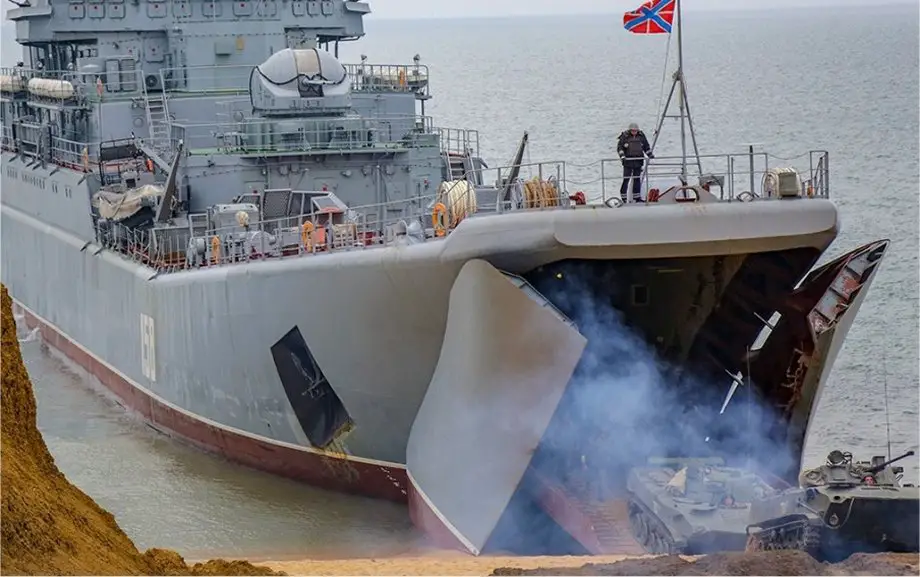In a report dated February 25, 2024, from UK intelligence, it has been disclosed that since the onset of the conflict with Ukraine in February 2022, the Russian Navy (RFN) has encountered significant operational challenges in the Black Sea, particularly in its north-western sectors.
Follow Navy Recognition on Google News at this link
 Project 775 landing ship Caesar Kunikov before the war. (Picture source: Russian MoD)
Project 775 landing ship Caesar Kunikov before the war. (Picture source: Russian MoD)
Initially, the RFN enjoyed unrestricted operational freedom across the Black Sea. However, Ukraine's innovative use of asymmetric warfare tactics, including guided missiles and unmanned vessels, has dramatically altered the maritime dynamics.
The Ukrainian forces have successfully implemented a strategy that has consistently pushed the Russian threat perception to unprecedented levels, combining land and sea strikes that have compelled the Black Sea Fleet (BSF) to retreat to the safer eastern parts of the Black Sea.
This strategic pressure has led to notable setbacks for the BSF, including the sinking of significant vessels such as the Tarantul III class Ivanovets and the Ropucha class Caesar Kunikov, culminating in the dismissal of the second BSF commander since the conflict's inception.
Despite Russia's attempts to maintain offensive capabilities from the eastern Black Sea, Ukraine's unconventional maritime warfare tactics have effectively undermined the RFN's operational strategies.
The defensive measures adopted by Russia have proven inadequate against Ukraine's aggressive stance, which has not only disrupted Russian naval activities but also ensured the security of Ukraine's maritime trade routes.
The collapse of the Black Sea Grain Initiative (BSGI) has not deterred Ukraine; instead, it has leveraged the situation to enhance its maritime export capabilities. Through the establishment of a unilateral Humanitarian Corridor, Ukraine has managed to elevate its trade volumes, achieving levels comparable to those before the war. This strategic victory underscores Ukraine's resilience and adaptability in the face of adversity, significantly impacting the ongoing conflict's maritime domain.



